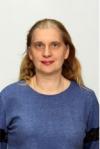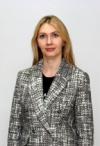References
- Akvazba E. O. Scientific style of speech as a structural element of teaching foreign speakers the Russian language. In: Sovremennyj uchenyj. 2020. № 2. P. 238–241. (In Russ.)
- Varzina N. P. Tsiven D., Kayyan Sh. Features of scientific style in the study of Russian as a foreign language. In: Genre-style approach in teaching Russian language and speech culture. Collection of scientific articles and methodological recommendations based on the materials of the All-Russian Scientific and Practical Conference. Ivanovo, 2013. P. 396–402. (In Russ.)
- State educational standard for Russian as a foreign language. The second level. Common ownership / ed. by A. V. Golubev. Moscow ; Saint Petersburg, 1999. 40 p. (In Russ.)
- The State Standard for Russian as a foreign language. Basic level / ed. by A. V. Golubev. Moscow ; Saint Petersburg, 2001. 32 p. (In Russ.)
- Kryuchkova L. S. Moshinskaya N. V. Practical methodology of teaching Russian as a foreign language. Moscow, 2011. 480 p. (In Russ.)
- Esina Z. I. [et al.]. Educational program on Russian as a foreign language. Elementary level. Basic level. The first certification level. Moscow, 2001. 134 p. (In Russ.)
- Requirements for Russian as a foreign language. The first level. Common ownership / ed. by A. V. Golubev. Moscow ; Saint Petersburg, 2007. 32 p. (In Russ.)
- Shchukin A. N. Practical methodology of teaching Russian as a foreign language. Moscow, 2018. 330 p. (In Russ.)
- Adonina L. V., Fisenko O. S., Yurova Y. V. Specific features of teaching the scientific style of the Russian language at the present period [Electronic resource]. In: Humanitarian and pedagogical education. 2021. Т. 7. № 1. Р. 42–46.
- The language demands of school: Putting academic English to the test. Los Angeles, 2007. 256 p.
- ChernyavskayaYa. L. Russian as a foreign language for future medical students (scientific style of speech) [Electronic resource]. Moscow, 2022. 128 p. (In Russ.) Electron dan. URL: https://www.ros-edu.ru/book?id=118461 (date of acсess: 11.12.2022). (In Russ.)
- Bailey A. L., Heritage М. Progressing students’ language day by day [Electronic resource]. California : Sage : Corwin Press, 2019. 240 р. Electron dan. DOI: https://dx.doi.org/10.4135/9781071873250.n5 (date of acсess: 19.12.2022).
- Bailey A. L., Wilkinson L. C. Linguistics and Education Article Collection. Introduction: Tracing themes in the evolution of the academic language construct [Electronic resource]. In: Linguistics and Education. 2022. № 71. Electron dan. DOI: https://doi.org/10.1016/j.linged.2022.101063 (date of acсess: 19.12.2022).
- Benson C. Adopting a Multilingual Habitus: What North and South Can Learn from Each Other About the Essential Role of Non-dominant Languages in Education [Electronic resource]. In: Minority Languages and Multilingual Education. Educational Linguistics. 2014. Vol. 18. Р. 11–28. Electron dan. DOI: https://doi.org/10.1007/978-94-007-7317-2_2 (date of acсess: 19.12.2022).
- Chand Z. A. Research and Practice Language learning strategy use and its impact on proficiency in academic writing of tertiary students [Electronic resource]. In: Procedia – Social and Behavioral Sciences. 2014. № 118. Р. 511–521. Electron dan. DOI: https://doi.org/10.1016/j.sbspro.2014.02.070 (date of acсess: 09.12.2022).
- Fenton-Smith B. Humphreys Р.Language specialists' views on academic language and learning support mechanisms for EAL postgraduate coursework students: The case for adjunct tutorials [Electronic resource]. In: Journal of English for Academic Purposes. 2015. Vol. 20. P. 40–55. Electron dan. DOI: https://doi.org/10.1016/j.jeap.2015.05.001 (date of acсess: 09.12.2022).
- Fenton-Smith B. Gurney L. Collaborator, applied linguist, academic, expense? Exploring the professional identities of academic language and learning professionals [Electronic resource]. In: Higher Education Pedagogies. 2022. № 7:1. Р. 160–178. Electron dan. DOI: https://doi.org/10.1080/23752696.2022.2130390 (date of acсess: 09.12.2022).
- Ferreira F. In defense of the passive voice [Electronic resource]. In: American Psychologist. 2021. № 76 (1). Р. 145–153. Electron dan. DOI: https://doi.org/10.1037/amp0000620 (date of acсess: 09.12.2022).
- Knoch U., Rouhshad F., Oon S. P., Storch N. What happens to ESL students’ writing after three years of study at an English medium university? [Electronic resource]. In: Journal of Second Language Writing. 2015. № 28. P. 39–52. Electron dan. DOI: https://doi.org/10.1016/j.jslw.2015.02.005 (date of acсess: 09.12.2022).
- Lever J. P., Montes de OcaMayagoitia S. I., Polo Velázquez A. M., Estrada A. V. Factor esexplicativos del rendimiento académico en hijos de inmigrantes mexicanos en Nueva York [Electronic resource]. In: Psicología Educativa. 2016. № 22 (2). P. 125–133. Electron dan. DOI: https://doi.org/10.1016/j.pse.2016.03.001 (date of acсess: 09.12.2022).
- Politzer-Ahles S. Girolamo T., Ghali S. Preliminary evidence of linguistic bias in academic reviewing [Electronic resource]. In: Journal of English for Academic Purposes. 2020. № 47. Electron dan. DOI: https://doi.org/10.1016/j.jeap.2020.100895 (date of acсess: 09.12.2022).
- Pu Sh. Xu H. Resistance and agency in second language academic discourse socialisation: Undergraduate students’ experiences of an EAP course [Electronic resource]. In: Journal of English for Academic Purposes. 2022. Vol. 58. Electron dan. DOI: https://doi.org/10.1016/j.jeap.2022.101122 (date of acсess: 09.12.2022).
- Pullum G. K. Fear and loathing of the English passive [Electronic resource]. In: Language & Communication. 2014. № 37. Р. 60–74. Electron dan. DOI: https://doi.org/10.1016/j.langcom.2013.08.009 (date of acсess: 09.12.2022).
- Ramirez-Castañeda V. Disadvantages in preparing and publishing scientific papers caused by the dominance of the English language in science: The case of Colombian researchers in biological sciences [Electronic resource]. In: Plos one. 2020. № 15 (9). Electron dan. DOI: https://doi.org/ 10.1371/journal.pone.0238372 (date of acсess: 09.12.2022).
- Saavedra M. F., Fuentes D. A., Lorenzo D. B., Hernández Martínez J. Á. La incorporación de las lenguas indígenas nacionales al desarrollo académico universitario: la experiencia de la Universidad Veracruzana [Electronic resource]. In: Revista de la Educación Superior. 2014. № 171. Р. 67–92. Electron dan. DOI: https://doi.org/10.1016/j.resu.2015.03.002 (date of acсess: 09.12.2022).
- Tupas R., Martin I. P. Bilingual and Mother Tongue-Based Multilingual Education in the Philippines [Electronic resource]. In: Bilingual and Multilingual Education. Encyclopedia of Language and Education. Springer : Cham, 2017. Р. 247–258. Electron dan. DOI: https://doi.org/10.1007/978-3-319-02258-1_18 (date of acсess: 09.12.2022).














